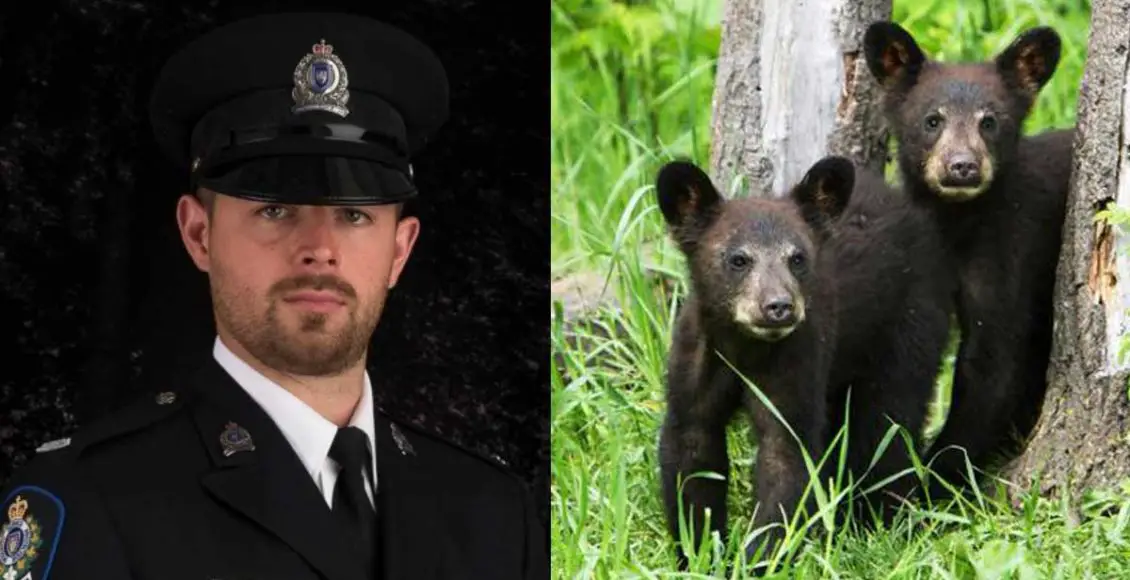Conservation Officer Who Was Fired For Refusing To Kill Bear Cubs Wins Legal Battle Clearing His Name

A Canadian conservation officer who was released from his job for refusing to murder two baby bears has won a legal battle over his firing.
“I feel like the black clouds that have hung over my family for years are finally starting to part,” Bryce Casavant told The Guardian. “But the moment is bittersweet – my firing should have never happened in the first place.”
In 2015, Bryce, who previously served in Afghanistan in the Canadian military, was sent to work in Port Hardy, British Columbia, where he lived at a mobile home park. One day, he found a female black bear going through a freezer of meat and fish.
Under the province’s rules, Bryce shot the big bear dead, but he decided to spare the cubs.
“Instead of complying with the kill order, he took the cubs to a veterinarian who assessed them and transferred them to the North Island Recovery Centre,” the court documents read.
Can you say "superhero"?
The BC conservation officer who was fired for refusing to kill 2 bear cubs won a court battle against his dismissal!The Canadian conservationist brought the cubs to a recovery center; they were eventually released to the wild! https://t.co/x6KUyWleaP
— Wolf Conservation Center (@nywolforg) June 16, 2020
The babies were eventually released back into their natural habitat but because of refusal to comply with the policy, Bryce was fired from his job.
He then spent a number of years fighting his employer’s decision at various provincial courts, and this week, the court of British Columbia ruled in his favor.
“I kept fighting so that I could clear my name. I’ve long stood for public service, honour and integrity. It’s how I was raised and how I’ve raised my daughter,” Bryce said.
“I really feel that I was targeted.”
And while the final ruling does not reinstate him back to his position, Bryce said that the decision was a “vindication” of his pricey legal battle, in which he had to stand against two provincial governments and his own union.
At the time, tens of thousands of people signed a petition against his dismissal.
The case drew international attention, and British comedian @rickygervais expressed his support for Casavant on Twitter, saying, “Reinstate this honourable man!” https://t.co/vdElf0P1c7
— Joanna Chiu 趙淇欣 (@joannachiu) June 11, 2020
Conservation officers have been aware of the growing tension between public safety and the management of “garbage bears.”
Earlier in 2020, however, First Nations community members in BC protested the scheduled killing of a bear that had been seen eating garbage.
They lobbied the conservation service and government to relocate the animal. It was then successfully moved to another location but was eventually shot and killed.
Last January, conservation group Pacific Wild, which works closely with Bryce, found that over 4500 bears had been killed by conservation officers in the province in the last 8 years.
“[British Columbia] isn’t a shooting gallery for government employees,” Bryce wrote in the report. “It’s unreasonable to believe that, including juvenile bear cubs, over 4,000 black bears were killed ‘as a last resort’.”
What are your thoughts on this story? Let us know by joining the conversation in the comments and please share this article if you’ve found it of value.

